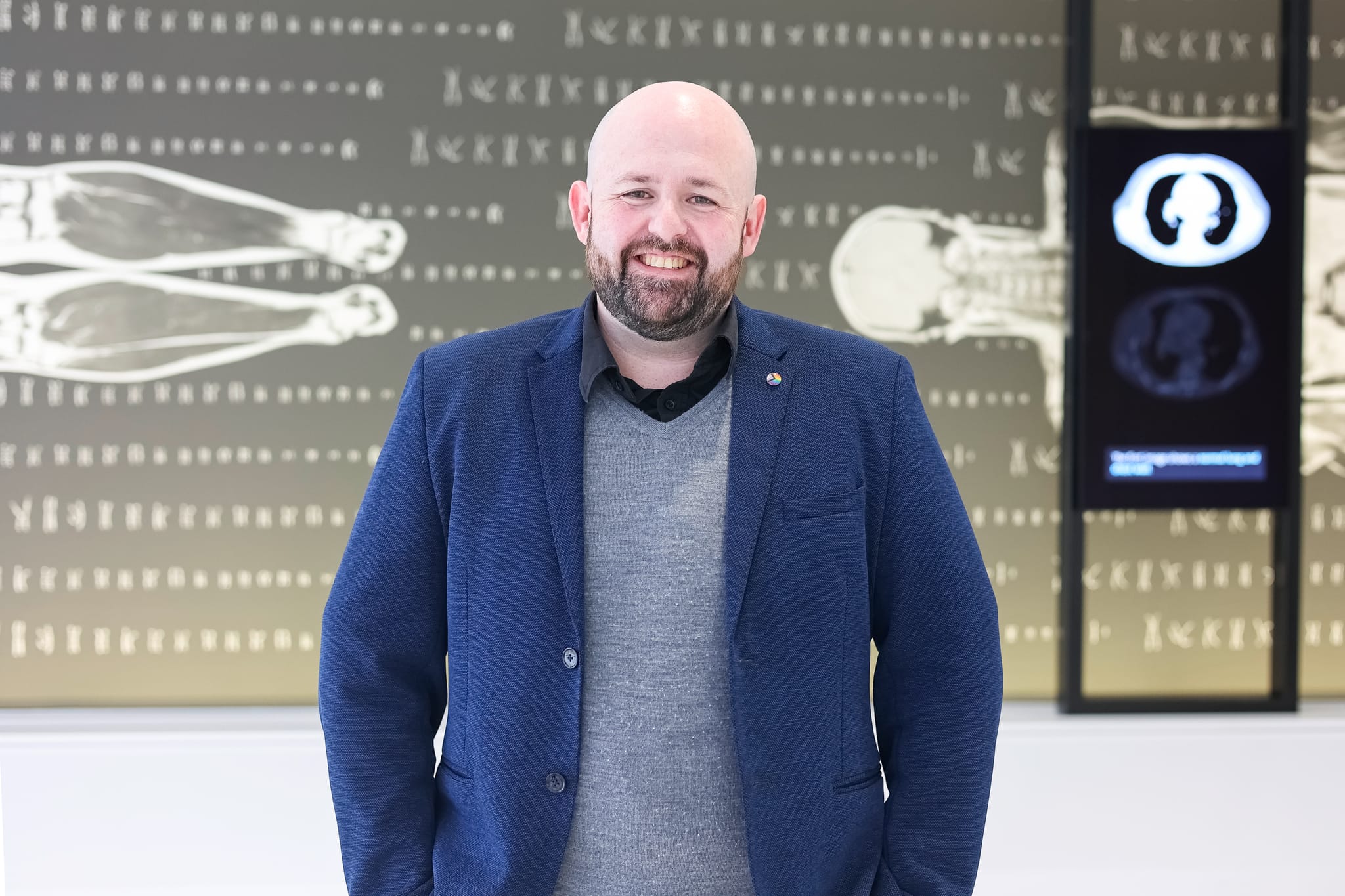
Cytophenix, a WA biotech startup led by Perkins Researcher Dr Kieran Mulroney, has been awarded a $500,000 grant as part of the Brandon BioCatalyst’s CUREator Incubator’s Health Security funding stream.
A Forrest Prospect Fellow at The University of Western Australia’s Medical School, and research fellow at the Transitional Renal Research Laboratory at the Harry Perkins Institute of Medical Research, Cytophenix CEO Dr Mulroney co-invented and developed technology to identify the best antibiotic to quickly treat life-threatening infections.
“Our AI-powered, cloud-hosted platform FloCAST provides a new pathology laboratory test designed to help doctors prescribe the most appropriate antibiotics for bacterial infections within hours rather than days: saving lives and helping to combat antibiotic resistance globally,” Dr Mulroney said.
“Each year more than 1.27 million people worldwide die from infections resistant to antibiotics, with this number projected to reach 10 million by 2050.
“The continued support from CUREator in the form of this top-up funding will allow us to accelerate our go-to-market strategy, further enhance our platform to apply to an even broader range of infections and ensure the technology can see real world use, sooner.
“Getting Cytophenix’s diagnostic tool to market is crucial if more lives are to be saved from the growing problem of antibiotic resistance.”
Dr Mulroney, said for a patient with a life-threatening bloodstream infection that cause sepsis, current tests need to grow the bacteria from the patient’s blood sample, and then subject them to a lengthy process of additional tests.
“This can take days to complete, and often results arrive too late to guide the choice of antibiotics used,” he said.
“And if you have one of these infections, you have more than a 7 per cent risk of death every hour that you don’t get treated with the right antibiotic.
“Patients can’t wait, so doctors must rely on broad spectrum antibiotics until they can receive guidance from the laboratory tests. Currently, that can take up to five days.
“As we use those broad-spectrum antibiotics more, they increase the rates of antibiotic resistance – which means those antibiotics are becoming less effective, more often.
“What we are doing at Cytophenix with FloCAST is shortening the time it takes to return laboratory results to just four hours, meaning we can get the results back to the doctor on the same day – helping them make the best choices for their patients, and a greater chance of saving someone’s life.”
Last year Cytophenix received an initial $500,000 grant through the CSIRO-funded CUREator’s Health Security stream.
The research underpinning FloCAST is a collaboration between doctors and researchers from the Harry Perkins Institute of Medical Research, UWA and PathWest Laboratory Medicine WA.
Cytophenix CEO Dr Mulroney is a leader in the field of microbiology diagnostics with expertise in the development, validation and commercialisation of innovative diagnostic tools. His groundbreaking research particularly focused on personalised precision diagnostics for serious infections, saw him named a finalist in the Early-Career Scientist of the Year category at this year’s Premier’s Science Awards.
Cytophenix was one of four projects awarded grants through the Brandon BioCatalyst CUREator Incubator’s Clinical and Health Security stream.
Brandon BioCatalyst runs the CUREator grants program with funding from the Australian Government’s Medical Research Future Fund and the CSIRO.
Brandon BioCatalyst CEO Dr Chris Nave said, “It’s exciting to witness the rapid progression of companies that have emerged from the CUREator program.
“In a relatively short period, we’ve seen alum securing commercial partnerships and private capital, underscoring the Federal Government’s vision for translational research funding.
“This demonstrates the immense value that a program like CUREator brings to the Australian life sciences ecosystem, embedding itself firmly in the national life sciences commercialisation infrastructure.”
